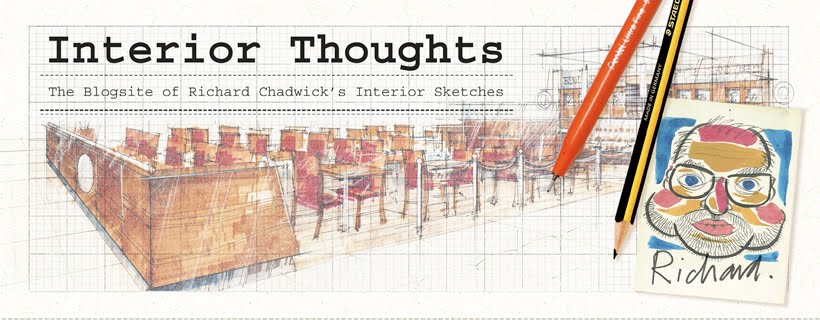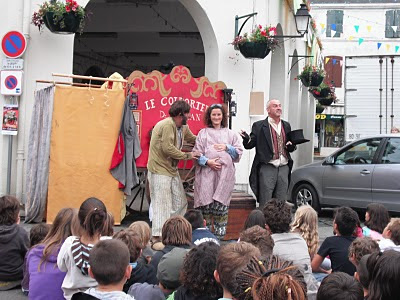In a world and media dominated by electronic communication, the ability to write clearly and concisely is still of prime importance - the ability to communicate without being misunderstood is paramount. I want to discuss this week two specific areas of written communication that, if done properly, pass by unnoticed, un-celebrated (as they should), but if done badly drive me up the fucking wall. Both unheralded, there is an undeniable art to both skills - the Art of compiling an Index, and the Art of writing an Instruction Manual.
The Index first, then. A good, well written index is a godsend - instant access to the piece of information you want, its location identified. Happy Days... and not just with books; the success of a good search engine depends on both you and the engine agreeing on the singularity of the 'Key' word or phrase that allows you to focus your search - a hierarchy of importance is established... Main category, Sub category. So if you and the Index disagree - confusion and frustration reign.
Lets look at a good example here; Jamie Oliver - I like him as a chef/cook whose great skill is to de-mystify the cooking process - "There, it's easy". I cook his recipes, like his books - so lets see... ' Happy Days with the Naked Chef '... a nice book and there is a recipe in there that we like: 'Sicilian Roasted Brill with Lemon, Anchovies, Capers and Rosemary' - a nice fish dish, key components Brill or Halibut with Sicilian Lemons. I go to the index, go to 'Fish' (main category), then brill or halibut as its sub category... uh uh... nothing under Fish ; ok, lets try Lemons... again, nothing. Dammit, I know it's in this book somewhere - I think... I try everything, and eventually the recipe turns up under 'Rosemary...' Whaaat? This is not good. This seriously pisses me off. Who is going to look under 'Rosemary' for a fish recipe? I then find it under 'Sicilian Lemons' etc - but not 'Fish' and the rest of the Indexing isn't brilliant, either. A major failure of the ability to follow a logical procedure - a communication breakdown.
Lets look then at Instruction Manuals - a fundamental part of modern society. We buy an electric blanket, we get a six page instruction booklet - and I just thought that you had to plug it in. I buy a new camera (I remember when they were just point and click) and it arrives complete with a 40-odd page manual AND an instruction disc to download onto my laptop - which I will do as soon as I can find the page in the laptop manual that tells me how to download the disc and where to store the information. Ok, I know I am getting old and this is second nature to most of you - so lets look at a specific example again.
I get a new mobile phone; I'm not too fussed about seeing it as the hub of my entire universe, I just want to be able to make calls with it, and preferably hands-free when I am driving. So lets see. It comes with not one but TWO instruction books, the first a 'quick introduction' booklet, the second an all-singing all-dancing 64 page book. 64 pages? So, hands-free... hhmmm... the words 'hands-free' appear precisely twice as far as I can see, once on page 4 as a safety announcement for when driving - excellent - and once in the Index, referring you to page 19. I turn to page 19 - and look in vain - the phrase 'hands free' does not appear on p19, nor does anything appertaining to it... there is nothing in the manual that explains how I can use it hands-free.
Yes, this is another example of an Index being badly written, in this case leading you to the wrong page... or indeed any page. I do however have a greater issue with Instruction manuals. They need to be very clearly written, that is a given; they all however make an assumption as to the amount of pre-knowledge that the recipient already has - and in my case this can be quite a lot less than you, or someone else reading the manual brings to the table. Lets return to the camera instructions: they start off being fairly straightforward, as in I can follow them, but soon segue into a series of acronyms and commands that loose me completely... AE mode, AF mode, A/S/M... and no key to help me out. Where do I go from here ?
We have a television and a dvd player/recorder; the combined total number of pages of the instructions weighs in at a hefty 232.... 232 pages is medium size novel; all I want to do is switch on the t.v., find a programme and be able to record it. And don't even start me on miniaturisation... failing vision and arthritic fingers are not just the preserve of the old.
It seems to me, apart from a communication problem, we have a problem of access here. We live in a technologically based society. Technology advances seemingly on a monthly basis, the amount of information available globally doubles every five years or so, all allegedly helping to advance society. Yet unless instructions are written clearly and can communicate rather than confuse, we run the risk of increasingly dis-enfranchising large swathes of society, certainly the older ones amongst us. Technological advances = increasing complexity. .But let's please start with simplifying the access.
The mobile phone and hands free - after much searching, on page 29 I came across 'Enabling a bluetooth device' ...Ahh... I was looking for the wrong key words... ok... I follow the instructions. Exactly. Twice. The mobile phone responds with 'device not recognised'.
What do I do now ?.......................and it's not just me............................
What always frustrates you about technology in general ?........
" Instruction booklets. I cannot believe how abstruse and unintelligible they are. They drive me up the wall "
Bill Oddie, The Observer, November 2010

















